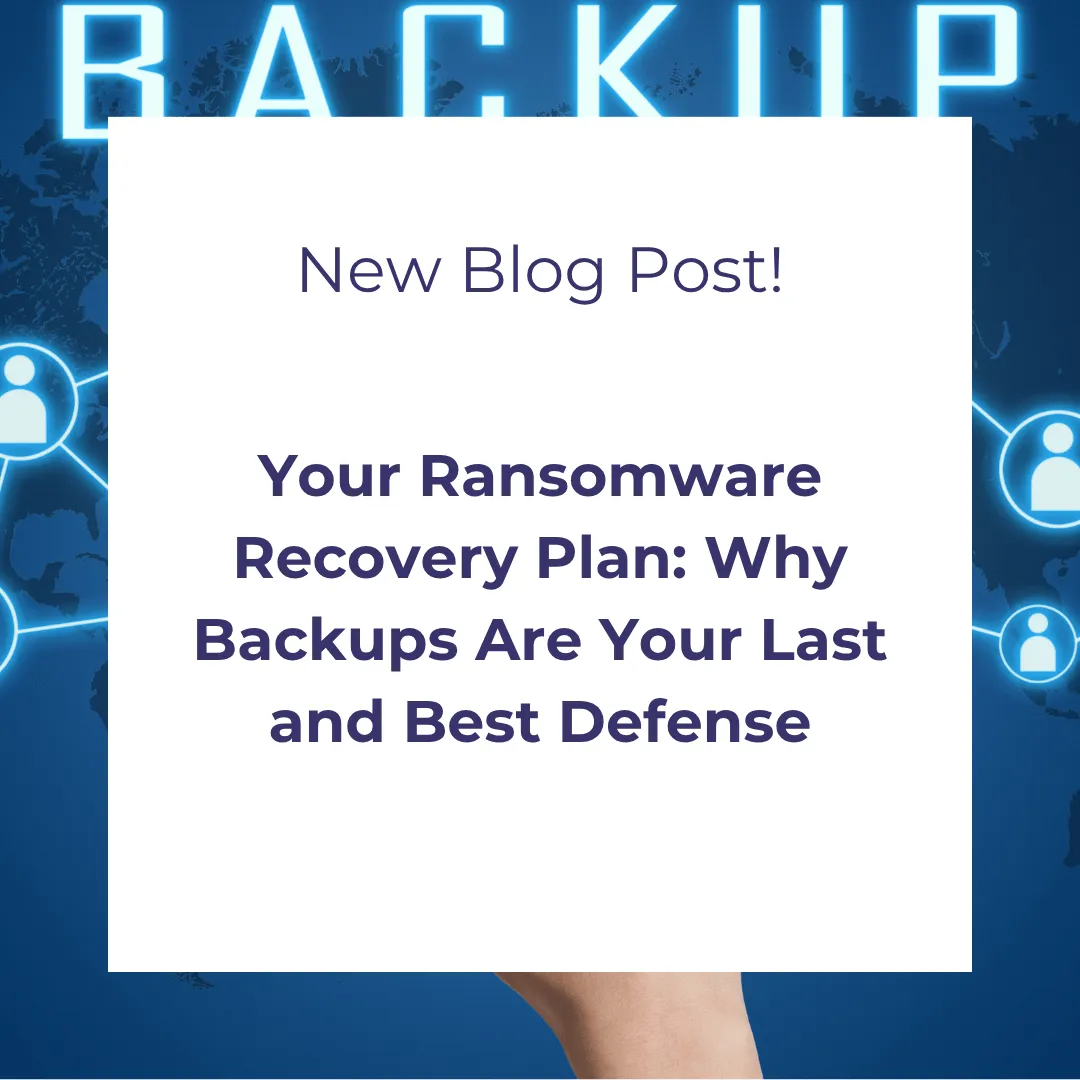
Your Ransomware Recovery Plan: Why Backups Are Your Last and Best Defense
“When a strong man, fully armed, guards his own palace, his goods are safe.”
-Luke 11:21 NIV
Introduction:
Imagine this: You turn on a church computer and see a scary message. It says all your files—your sermon notes, your member directory, your financial records—are locked. To get them back, you must pay a large sum of money to an anonymous criminal.
This isn't a scene from a movie. This is a real threat called ransomware, and it is one of the biggest dangers facing organizations today, including churches.
When this happens, it can feel like your only option is to pay. But paying the ransom is a risky choice, and it’s not your only one. The best defense is having a plan before it ever happens.

With that said, let's cover why backups are best against ransomware! 👊
What is Ransomware?
Ransomware is a type of malicious software, or malware, that gets into your computer system. It can happen when someone clicks on a bad link in an email or visits an infected website.
Once inside, it spreads quickly and encrypts your files. Encryption is a way of scrambling data so it can’t be read. The criminals hold the only key to unscramble the files, and they demand a ransom payment in exchange for it.
The Dangers of Paying the Ransom
When your ministry’s data is held hostage, paying the ransom can seem like the fastest way out. However, there are serious risks:
There’s No Guarantee: You are dealing with criminals. There is no guarantee they will unlock your files even after you pay. Many organizations pay and get nothing in return.
You Become a Target: Paying the ransom tells criminals that you are a target who is willing to pay. This can make you more likely to be attacked again in the future.
You Fund Criminal Activity: The money from ransoms funds other criminal activities around the world.
Paying the ransom is a gamble you don’t have to take. There is a safer, more reliable way to get your data back.
Backups: Your Only Surefire Recovery Plan
The single most effective way to defeat a ransomware attack is to have a secure, up-to-date backup of your data.
A backup is simply a copy of all your important files that is stored in a separate, safe location.
If you are hit with ransomware, you don’t have to negotiate with criminals. You can ignore their demands, clean the infected computers, and then restore all your files from your backup copy. Your ministry can be back up and running without losing critical data or paying a dime.
What Makes a Good Backup?
Not all backups are created equal. A truly effective backup plan has three key features:
It’s Automated: Backups should happen automatically every day without anyone having to remember to do it. This ensures you always have a recent copy of your files.
It’s Stored Off-Site: Your backup copy should be stored in a different physical location, like a secure cloud server. This protects your data not just from ransomware, but also from fire, theft, or natural disasters.
It’s Secure: The backup itself must be protected with security like encryption to ensure no one else can access your sensitive information.
Peace of Mind in an Uncertain World
Ransomware is a frightening threat, but it doesn’t have to be a devastating one. With a solid recovery plan built on reliable backups, you can face this threat with confidence.
At Systems Shepherd, secure, automated cloud backups are a core part of our service. We handle the entire process for you, giving you the peace of mind that comes from knowing your ministry’s precious data is always protected.
Click here to learn how Systems Shepherd can protect your church's computer!
